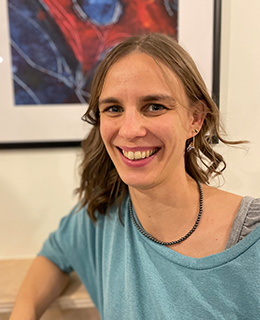Teresa Thurston appointed new Associate Professor of Cell and Molecular Biology

The Thurston group uses a multidisciplinary approach, combining microbiology, cell biology, biochemistry and X-ray crystallography to better understand bacterial virulence factors and host immunity. They focus specifically on Salmonella, which is responsible for ~ 1 million death per year world-wide and Burkholderia, which imposes a significant human and social-economic burden in lower-middle income countries. Their goal is to understand the host and pathogen determinants that impact the intracellular fate of these bacteria.
“I am incredibly excited to take up this position at the Dunn school and join such a diverse and vibrant community. I am looking forward to carry on our work on the molecular mechanisms and physiological functions of bacterial virulence proteins and cannot think of a better place in which to do this.”
Teresa Thurston studied for a degree in Natural Sciences and then obtained a PhD in innate immune signalling with Dr Felix Randow at the University of Cambridge. She was postdoc at the MRC-LMB and then at Imperial College, working with Prof. David Holden. In 2014 she obtained an Imperial College Junior Research Fellowship and then established her own independent group in 2018 with a BBSRC David Phillips Fellowship.
The Thurston group will start at the Dunn School in September 2024. The Associate Professorship in Cell and Molecular Biology is held in conjunction with Magdalen College.
Explore more
Thurston Group
The Thurston group elucidates the mechanisms by which intracellular bacteria overcome the host’s innate immune response.
Infection and Immunity
Several Dunn School groups use a range of approaches to investigate antigen presentation and immune regulation during health and disease and study the mechanisms that enable bacterial and viral pathogens to invade and proliferate inside their hosts.
More news
The latest news stories and research highlights from the Dunn School.